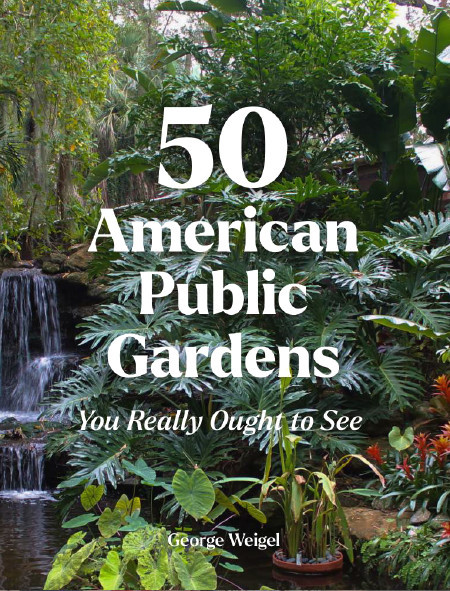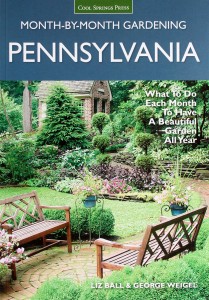Links and Resources
Be judicious in where you hunt online for gardening information. Not all you’ll find is accurate or applicable to gardening in Pennsylvania. Here are some links to mostly non-commercial sites I’ve found interesting and reliable. Have fun checking them out… but please come back when you’re done!
Plant Research
- Penn State Trial Gardens. Penn State runs a wonderful testing ground where you can see new (and proposed) annual-flower and vegetable varieties growing each summer. It’s in Lancaster County. This site lets you search ratings.
- Pennsylvania Gold Medal Plants. See descriptions of plants that have won Gold Medal awards through this program of the Pa. Horticultural Society that encourages greater use of worthy but under-used woody plants.
- Longwood Gardens’ Plant Explorer. Type in the plant you’re researching, scan through Longwood’s list, or search by characteristics for details on just about any landscape plant worth growing.
- Missouri Botanical Garden’s Plant Finder. Facts, stats and pictures on just about any plant you might be researching… along with ratings on each by gardeners who have grown them. Includes a tool that lets you type in characteristics on your plant wish list, then the site tells you plants that match those parameters.
- National Gardening Association’s Plants Database. Another excellent and large searchable list of 757,000+ plants and hundreds of thousands of images, developed by more than 4,000 Garden.org members from around the globe.
- Pa. Native Plant Guides. Dauphin County, Pa.’s Manada Conservancy provides details on plants that are native to central Pennsylvania. Includes lists, sorted by sun, shade, wet, dry, etc.
- Native Plant Finder. Delaware’s Mt. Cuba Center public garden has a listing of native plants along with detailed descriptions and photos of each.
- Ultra-Local Plants for Central Pennsylvania. Cumberland County Master Garden Susan Skender compiled this impressive and detailed list of plants that are specifically native to the six counties around Harrisburg.
- Tree Selector. Very nice tool from University of Illinois that lays out tree choices by every situation you can imagine.
Bugs/Diseases/Plant Problems
- Penn State Extension Pest Management. Jump-off point for Penn State Extension’s vast library of articles and information on all sorts of pest problems.
- Bug Guide.net. Pictures galore to help you ID garden pests… plus folks willing to talk bugs anytime.
- Cornell’s Pest Management Guide. Detailed low-impact solutions to all sorts of bug, disease, and other landscape problems… from Cornell University.
- Penn State’s Plant Disease Clinic. Tells how you can send off suspected diseased samples to Penn State for free diagnosis (Pa. home gardeners only).
- Fungi in the landscape? Pictures and information from Messiah College on various fungi that grows on mulch and other dead/decaying wood.
Edibles
- Penn State’s Fruit Production for the Home Gardener. $12 booklet with details on how to grow blueberries, strawberries, grapes, apples and other fruits popular with home gardeners.
- Penn State’s Tree Fruit Production Guide. $15 booklet with everything you’ll need to know to grow fruit trees in Pennsylvania.
- National Gardening Association. Free detailed online guides for vegetables, fruits, and herbs. Lots of good information here.
- Cornell’s Food-Growing pages. Cornell University has a helpful collection of articles on all aspects of growing edibles.
Lawns
- Penn State Turf Management. Mainstream, research-based home-lawn pointers from Penn State’s venerable program.
- Ohio State turfgrass care. Good jumping point to fact sheets on lawn weeds, lawn bugs and lawn disease.
- National Turfgrass Evaluation Program. Data from states all around the country on top-performing grass-seed varieties.
- Weed identification. Can’t figure out what those weeds are that are invading your lawn? This site from Rutgers University shows you pictures and helps you zero in on just about every weed you’re likely to encounter in the yard.
Other Helpful Stuff
- Penn State soil testing. Details on how to get your soil tested through Penn State’s testing lab. It’s the service I use.
- Mulch calculator. Type in the dimensions, and this handy tool spits out how much mulch to order. Ditto with fertilizer, lime and sulfur.
- Climate reports. Daily climate reports from the National Weather Service office in State College.
- University of Maryland Home and Garden Information Center. Excellent list of helpful what-to-do-when tips on a monthly and topical basis. Pretty close to the timing for central Pennsylvania, too.
- Garden Watchdog. A service of Dave’s Garden, this is like the Consumer Reports of mail-order seed and garden companies. See feedback from others before you deal with an unfamiliar company.
- Dave’s Garden. Huge online community of fellow gardeners, offering all sorts of helpful information, such as forums, plant ratings, blogs, seed trading, garden book reviews and much more.
- Poisonous plants. The Poison Control Center’s pages on poisonous and non-poisonous plants, with photos. The best site for checking out plants that are poisonous to pets is the ASPCA’s site.
- Tree ID. The National Arbor Day Foundation has a tool that walks you through identifying various trees. Also help getting the right tree in the right place, pruning correctly, recognizing hazard trees and more.
- Houseplant care. Huge and reliable database offering details on caring for houseplants.
- The Garden Professors. Like your gardening info to be fact-based? Four university horticulture profs joined forces on this blog that tackles timely garden topics and sets the record straight.
- Joe Gardener. Joe Lamp’l’s site. You might’ve seen Joe on the DIY network, the Today Show, PBS and more. More than anyone else, Joe’s take on gardening is nearly identical to mine. Check out his podcasts.
- Garden Rant. No holds barred here in this usually irreverent but entertainingly honest blog co-written by four avid gardeners and friends.







